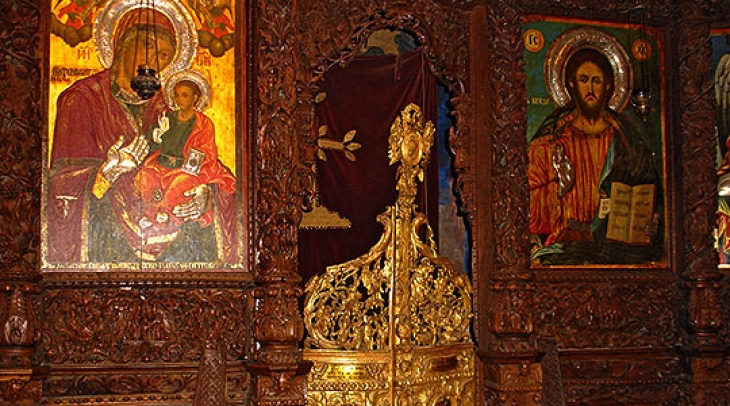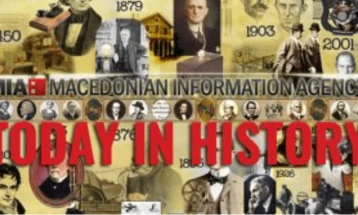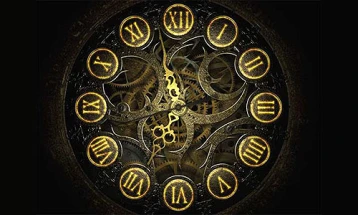Religious calendars
- 14 October 2024 (MIA)

14 October 2024 (MIA)
Macedonian Orthodox Church Calendar
The Protecting Veil of the Most Holy Mother of God
The Church has always glorified the most holy Mother of God as the Protectress and Defender of the Christian people, entreating, by her intercession, God’s loving-kindness towards sinners. The Mother of God’s aid has been clearly shown times without number, both to individuals and to peoples, both in peace and in war, both in monastic deserts and in crowded cities. The event that the Church commemorates and celebrates today proves this constant protection of the Christian people by the Mother of God.
On Oct. 1, 911, in the time of the Emperor Leo the Wise (or the Philosopher), there was an all-night vigil at the Blachemae church of the Mother of God in Constantinople. The church was crowded. St Andrew the Fool for Christ was standing at the back of the church with his disciple Epiphanius. At four o’clock in the morning, the most holy Mother of God appeared above the people with a veil spread over her outstretched hands, as though to protect them with this covering. She was clad in gold-encrusted purple and shone with an unspeakable radiance, surrounded by apostles, saints, martyrs and virgins.
Seeing this vision, St Andrew gestured towards it and asked Epiphanius: ‘Do you see how the Queen and Lady of all is praying for the whole world?’ Epiphanius replied: ‘Yes, Father; I see it and stand in dread.’ As a result, this commemoration was instituted to remind us both of this event and of the Mother of God’s constant protection whenever we prayerfully seek that protection, that shelter, in distress.
Catholic Calendar
St. Callistus I
That is the problem we face with Pope Callistus I who died about 222. The only story of his life we have is from someone who hated him and what he stood for, an author identified as Saint Hippolytus, a rival candidate for the chair of Peter. What had made Hippolytus so angry?
Hippolytus was very strict and rigid in his adherence to rules and regulations. The early Church had been very rough on those who committed sins of adultery, murder, and fornication. Hippolytus was enraged by the mercy that Callistus showed to these repentant sinners, allowing them back into communion of the Church after they had performed public penance. Callistus’ mercy was also matched by his desire for equality among Church members, manifested by his acceptance of marriages between free people and slaves.
Hippolytus saw all of this as a degradation of the Church, a submission to lust and licentiousness that reflected not mercy and holiness in Callistus but perversion and fraud. Pope Callistus is listed as a martyr but we have no record of how he was martyred or by whom. There were no official persecutions at the time, but he may well have been killed in riots against Christians.







